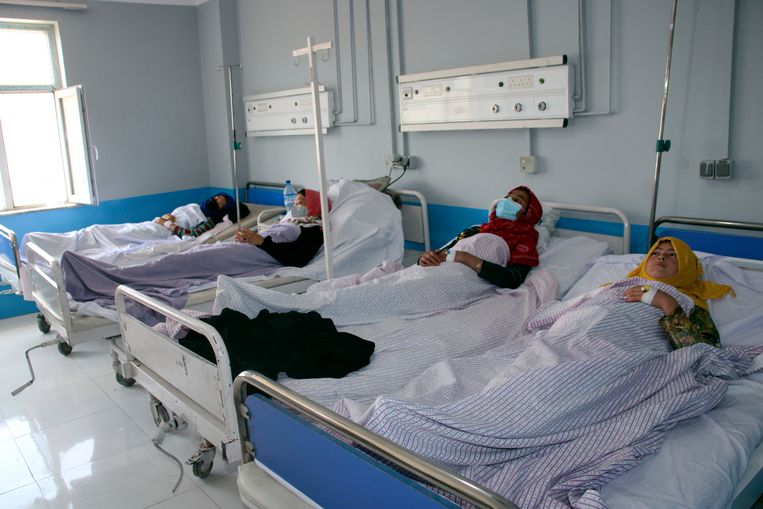There is a fear that parents will no longer dare to send their children to school in the area, where girls can hardly get an education anyway.
Shortly after entering class last Saturday, 63 girls and their teachers fell ill at an elementary school in northern Sar-e-Pul province (about 275 kilometers northwest of the capital, Kabul): they had breathing problems and became nauseous. It started with two kids who were rushed home because a teacher suspected they had the flu. But twenty minutes later, dozens of others had the same symptoms.
The same thing happened a day later at another elementary school in the same area. 26 children developed shortness of breath and were placed on a ventilator at the provincial hospital. They can go home on Monday and Tuesday; The girls are not dead.
“Strangers entered classrooms and spread poison,” said Omar Sarbouli, the province’s director of culture and media. “The students were unable to breathe, had watery eyes, runny noses, and passed out.” The authorities are still searching for the perpetrators.
Significantly restricted freedom of movement
This attack is known to be the first of its kind since the Taliban came to power in 2021 and has significantly curtailed the rights of women and girls. Girls are allowed to attend school until they are twelve, after which they are somewhat withdrawn from public life: they can no longer go to school, they can hardly work anywhere, and, for example, they are not allowed into parks or gyms.
The Taliban can forget about the international recognition they want as long as they ignore women’s and human rights. But the Taliban refer to the Koran and call it internal affairs.
The thought that someone was now trying to poison schoolgirls horrified parents and children alike. According to local authorities, the poisoning may have been due to hostilities between villages, however New York times He writes that residents are skeptical about this.
Previous poisonings
Similar incidents occurred in the country before the Taliban came to power, and poisoning was also suspected. In 2012, for example, nearly 300 children fell ill in the northern province of Takhar, and a year later the same thing happened with 200 children in the capital, Kabul. At the time, the authorities blamed the Taliban, although they always denied it.
Late last year, thousands of schoolgirls in neighboring Iran may have been poisoned in dozens of schools across the country. It took months before the authorities took the “rumors” seriously and launched an investigation.

“Creator. Award-winning problem solver. Music evangelist. Incurable introvert.”







More Stories
British military spy satellite launched – Business AM
Alarming decline in the Caspian Sea
Lithuania begins construction of military base for German forces